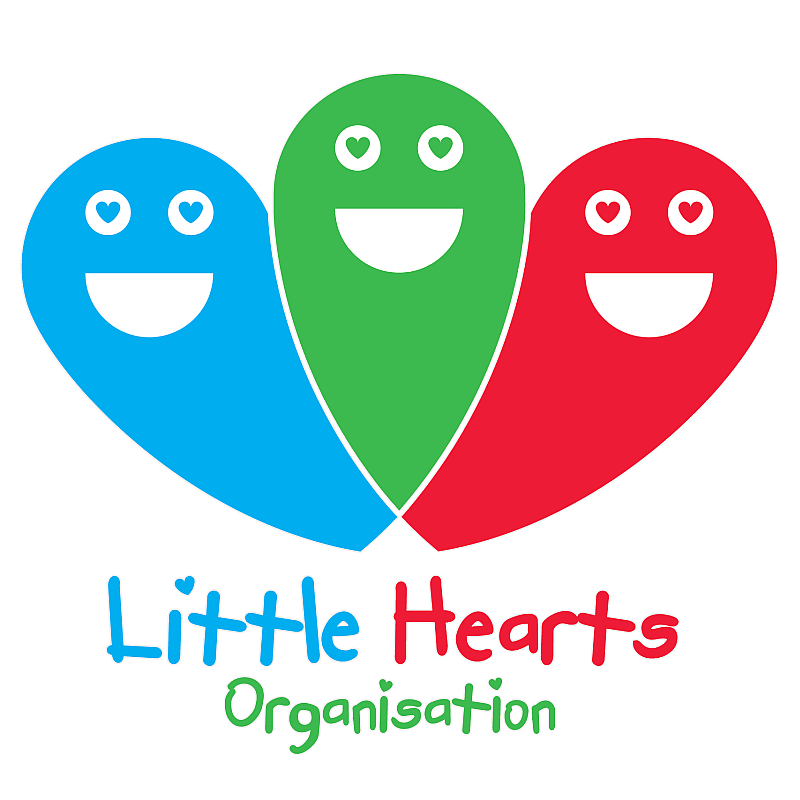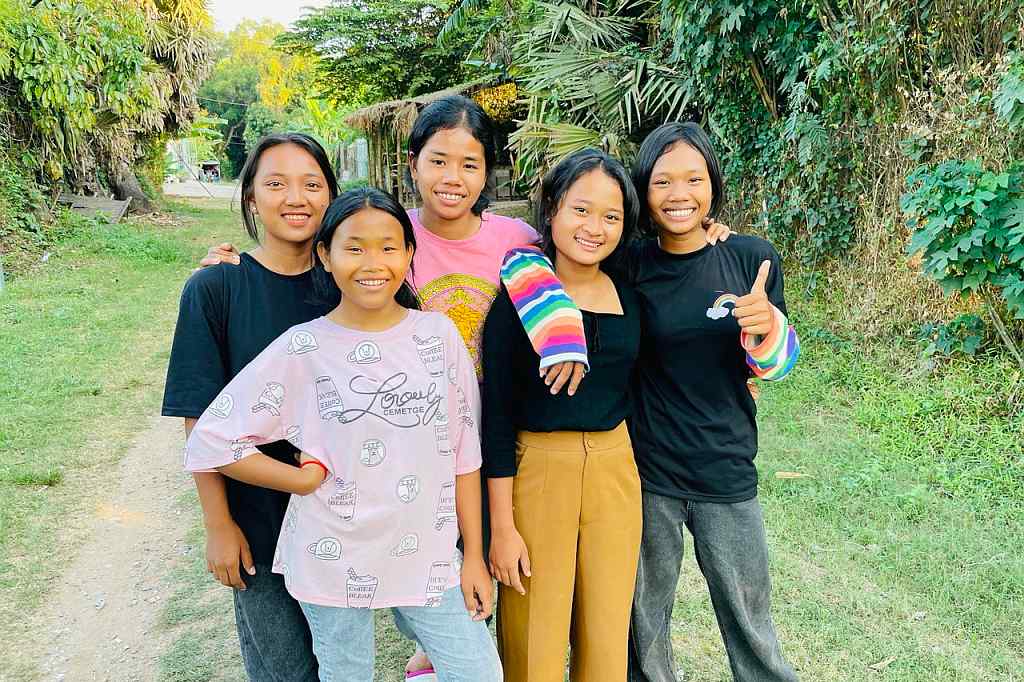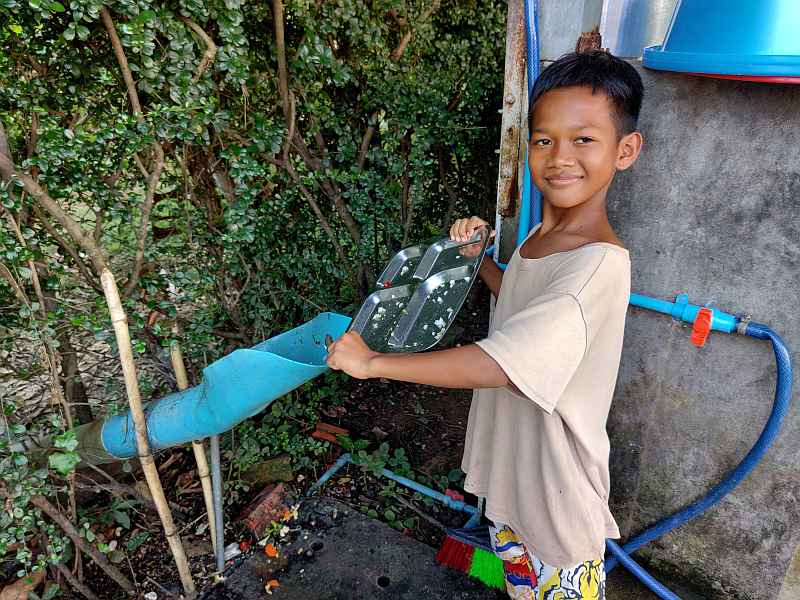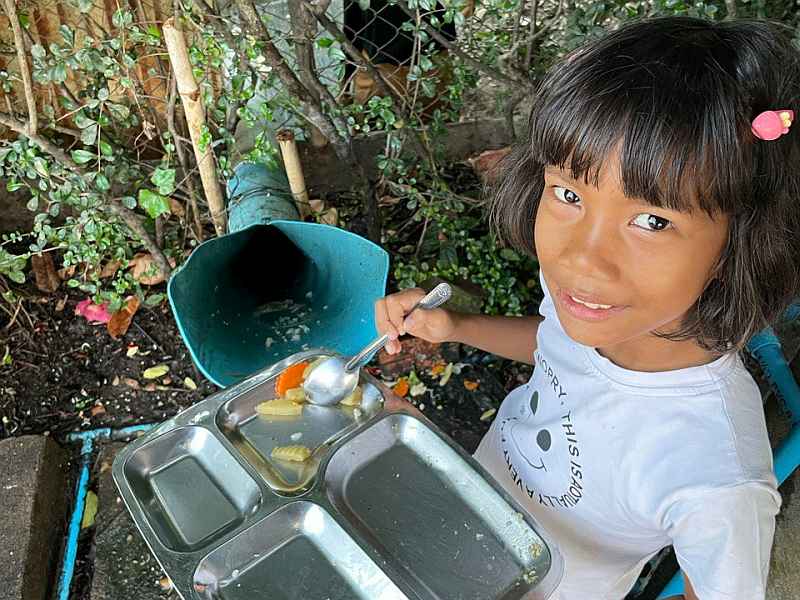Several Little Hearts teenagers are currently participating in the Rise Challenge, an annual programme that aims to identify brilliant people from around the world who would like to make a difference by serving others, improving society, or safeguarding the environment – in short, tomorrow’s leaders and social innovators. Applicants must be 15–17 years old and create and carry out a project that showcases their personal engagement and commitment to making the world a better place.
Winners of the competition receive a scholarship to attend a university of their choice and are paired with mentors who help them find internships and jobs. But even those who don’t win get to join a global community of leaders and gain access to a wealth of online courses and opportunities. So, while the chance of winning may be remote, we encourage the kids to participate so that they may learn to build a project from scratch and follow it through to completion; look for solutions to important problems by reading and doing research on their own; become more independent in their thinking and outlook; and especially engage with the realities of the outside world in an earnest, meaningful way.
In stage 1 of the application, participants set up an online profile and introduce themselves in a short video. In stage 2, which was due last week, they must describe their project. So, what did Little Hearts kids come up with to take part in this ambitious programme?
Malee’s proposed project involves the rescue of stray dogs and cats. ‘I see them every day when I cycle to school,’ she explains. ‘They look scrawny and unhealthy. They’re always in danger from traffic because they live on the street. They have no home.’ She hopes to set up a partnership with the Phnom Penh Animal Welfare Society (PPAWS) so that stray animals in her neighbourhood can receive proper veterinary care and, hopefully, be adopted by a family.
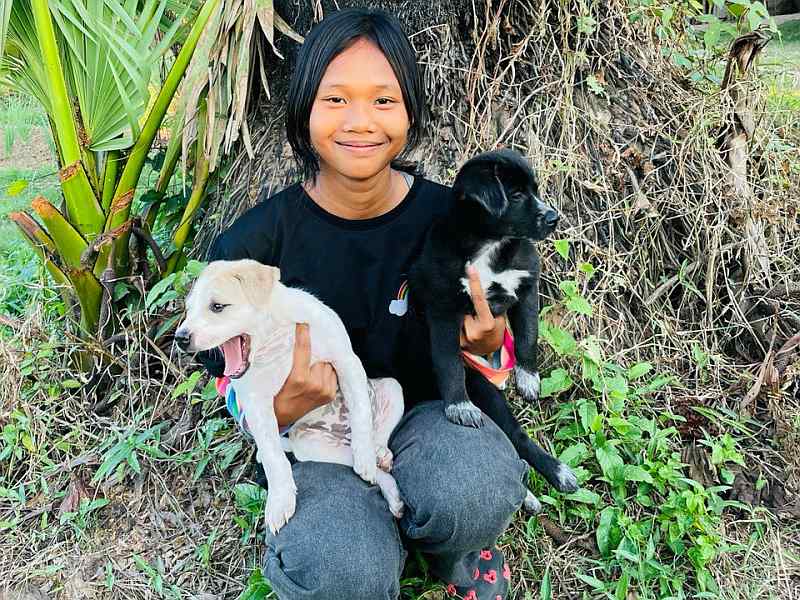
Her classmate Olivia is keen to reduce plastic waste by reusing plastic bottles. The idea came to her in one of her weekend art classes, where she learned to make colourful hanging flower pots out of used bottles. ‘I want to reduce the number of plastic bottles that end up in the natural environment,’ she says. ‘We have a serious rubbish problem in Cambodia, and there are no recycling facilities, so reusing materials is the best way to lessen waste.’ She will start with a first batch of 100 bottles. Once they have been decorated and repurposed as flower pots, she intends to sell them at a local market. Each hanging pot will be accompanied by a short write-up on why reusing plastic is so important. Where will she get all the empty bottles? That won’t be hard, she says with a grin. It will be enough to tell all the neighbours, including the drinks stalls across the road from Little Hearts.
Planting trees is Micky’s mission. ‘Cambodia has lost so much of its forest already,’ she complains. ‘We have to do something about it!’ Reforestation is the answer, she believes. Her first impulse was to buy a parcel of land big enough to plant 1000 trees, focusing on native species like bael and banyan trees, and maybe some fruit trees like mango and rose apple. But she was quickly reminded of the high price of land in Kandal province, so she decided to start small (while still thinking big). Perhaps she can plant a few trees in the Little Hearts compound and in neighbouring yards and obtain corporate sponsorships for each tree as it grows. Eventually, that money could be channelled to a land purchase. ‘Once the trees are big and strong and need less attention, I could turn the forested land into a park, so people could come and enjoy it and have a picnic there,’ she adds.
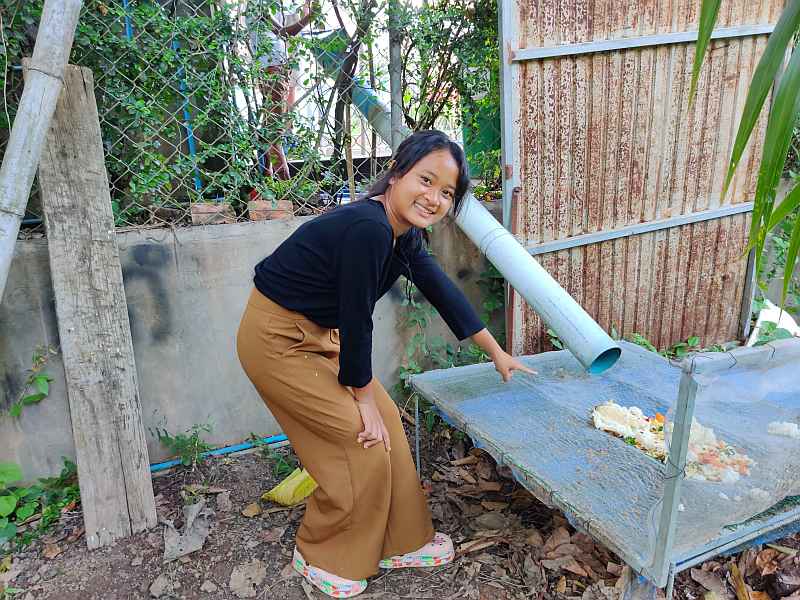
For her project, Srey Roth is tackling a pressing environmental and social problem: food waste. She had observed how much food waste was being produced at Little Hearts with every meal (imagine so many kids and staff, all with their individual likes and dislikes, eating three meals a day) and wanted to do something about it. She spoke to the next-door neighbour, who happens to keep chickens and pigs in his yard, and offered to pass on the food scraps to feed these animals. The neighbour was all too happy to accept, so Srey Roth enlisted the help of Billy, Little Hearts’ tuk-tuk driver and master problem-solver, to build a chute out of plastic pipes. The chute was installed through the fence separating Little Hearts from the neighbour’s property. Now, the food waste can be funnelled directly to the neighbour’s hungry chickens right after the plates have been cleared. Any leftovers are composted and used as fertilizer.
Daleine’s project is still in an ideation phase. She, too, wants to reduce waste, especially the millions of surgical masks that are used daily because of Covid and are eventually thrown away. It would be great, she explains, to be able to reuse these masks by turning them into something pretty and affordable, like hair ties, bracelets, tote bags and other accessories. Of course, there is the hygiene problem to resolve first – how do you disinfect and process used masks so that they are suitable for downcycling? So much to think about!
Two more teenagers, Ben and Noah, are also busy thinking about their development projects, which are about wind energy and food aid for the needy, respectively. Their projects may come too late to be submitted to the Rise Challenge, but they are nevertheless committed to following through with them. The competition, after all, is just a pretext to encourage the kids to think constructively about social and environmental issues.
Good luck to all our young innovators as they continue on this demanding but exhilarating journey to tackle the world’s problems. We look forward to seeing their projects come to fruition. Stay tuned!
